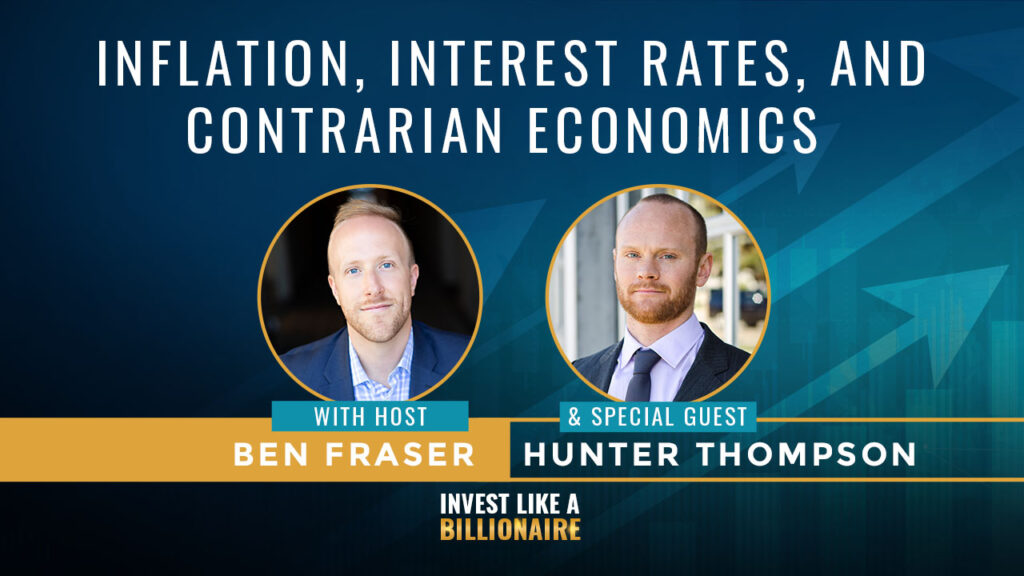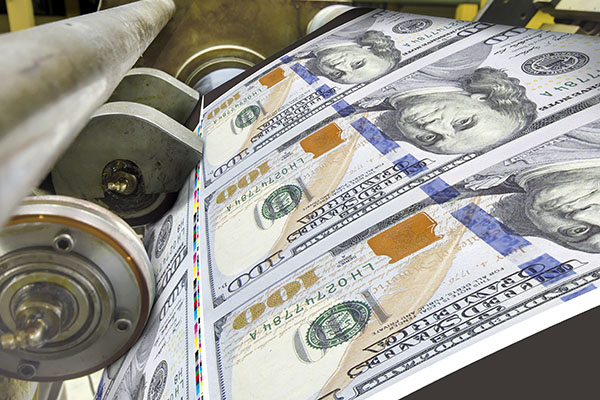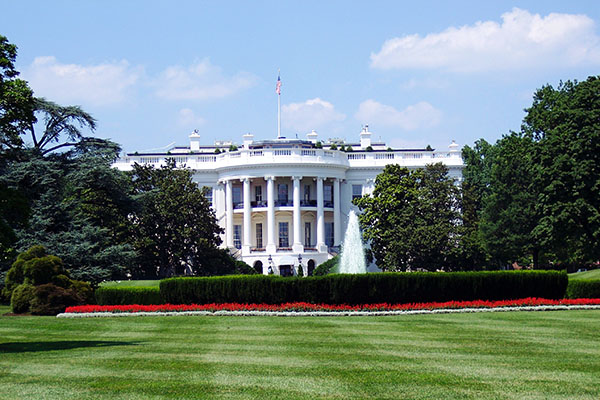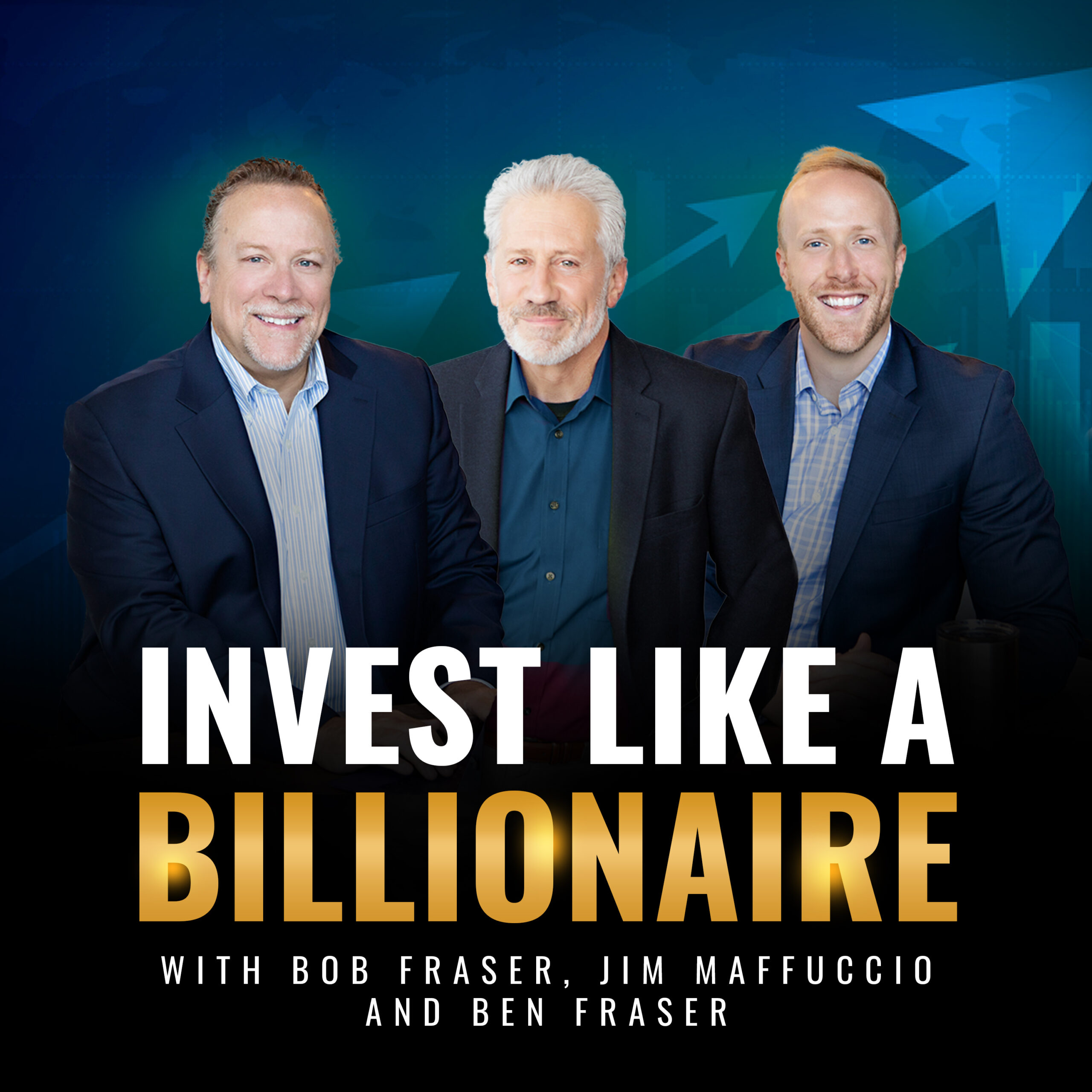
Hunter Thompson has been in the private equity world for over a decade, raising over $50M in investor capital. Having invested in many real estate asset classes, Hunter’s economic perspective shapes much of his strategy for evaluating opportunities. His view of economic thought has changed over time, and many of his perspectives are contrarian to mainstream thought. Join us as we jump into a discussion on where interest rates and inflation are headed and how that informs our investment strategies.
—
Watch the episode here:
Listen to the episode here:
Inflation, Interest Rates, And Contrarian Economics With Hunter Thompson
We are excited about our guest, Hunter Thompson. If you have not heard of Hunter Thompson, number one, I’m very surprised and number two, you need to get involved in everything he’s doing because he’s got amazing resources for investors. A little quick background on Hunter. He’s a full-time real estate investor and Founder of Asym Capital. It is a private equity firm in Los Angeles. He personally raised more than $50 million in private capital and has been featured in Forbes, GlobeSt, Inside Self-Storage and a variety of other media outlets.
He is a guest speaker and shared the stage with names such as Peter Schiff, Doug Casey, Jean Epstein and many others. He is the host of the very popular podcast, Cash Flow Connections Real Estate Podcast. Check it out. He helps investors learn the intricacies of commercial real estate and has had some very impressive guests on his show. We are excited to have you, Hunter. Thanks for joining.
I appreciate it. Congratulations on the launch of this program. You have had some excellent guests so far. I’m honored to be included.
We are going to do a unique topic. There are a lot of things we could do talking with you, Hunter. You have a broad opinion and skillset on things. We want to go deep into economics. I heard you on a debate in the Best Ever Conference talking about interest rates and where you see interest rates going. It was a great setup. We had different individuals from different sides debating and supporting both sides of it.
We haven’t talked a lot about economics in this show yet, so we love to dive into these topics and how it impacts investors. The core of our readers is passive investors, either new to real estate or getting into real estate syndications. Inflation and interest rates, these big-picture economic drivers are very important to where do we invest our money and how does that impacts investment. I love your thoughts on this. I’m excited to dive into these topics.
Maybe an alternative case here, you carry more the non-inflationary position, which is a position that I have argued for quite a bit. There are lots of voices. Listening to what Ben was saying about the stages you have shared, those names of the people, that hard money crowd is a hyperinflation crowd. There are a lot of fear about inflation and a lot of that is overblown. This could be an interesting conversation to blow up some of the thinking there.
Hunter, how about you get a little bit into your background, how you’ve got into the space briefly and also your development of economic thoughts? I know you grew up in the Austrian School of Economics and the hard money. Where are you at? Let’s dive in there.

As you are reading that bio, it stuck out to me. Anybody that’s tapped into that world knows there’s a very specific type of speaker that I have been with. What you mentioned though is an interesting segue. My background is an important data point when it comes to my view of a lot of these things. I graduated college around 2009 in the heart of the Great Recession. My investment thesis is going to be formed by those moments. I wasn’t negatively impacted by the Great Recession. I was in college. I could afford 2 or 1 ramen noodles a week. It didn’t matter to me. It didn’t change my life because I wasn’t participating in the space of finance.
I did get to see two things happen. Number one, I’ve got to see incredible price deflation take place and an incredible opportunity to invest in real estate. Number two, a lot of conversation around money printing and what was going to happen in the wake of that. It was interesting because as someone who understands generally the sentiment of investors and such from an intuitive standpoint, I recognized that was going to be one of the most favorable times to invest in real estate in the history of the US. It ended up being the case.
Our vision of history smooths things out. If you look at the chart and you cover up everything after 2010, which is what I was doing at the time, I couldn’t see into the future, it’s a different picture. If you go back and look at those news articles, the tailspin of foreclosures was never-ending. That’s what was going on in Vegas, California or Arizona. Fifty percent of all the foreclosures took place in five states. It was a nightmare.
By the way, not to mention, everybody has a lot of respect for it and maybe some people who don’t have a lot of respect for it are telling you, “You are going to start a real estate company? Do anything besides that.” That’s the reality of the situation. There’s a social dynamic there that can be overstated. If you are a relatively young kid trying to figure out where you want to go in your career and everyone is telling you, “Don’t do this thing,” get the personality to say, “It’s the one thing I’m going to try.”
You have a contrarian view, which was proven to be very successful. I was a successful stock investor for many years. My best timing indicator, bless her heart, was my mom. When she would say, “Back up the truck. It’s time to put everything you’ve got into the market,” that was the sign at the top. I had sold everything and did well. When she said, “It’s time to get all in cash. We’ve got to cover our Fannie’s here,” that was the time I back up the truck. I did super well with the mom contrarian strategy. She was my number one indicator.
That is a way to make money. I remember those days in 2009. I was there. I was a professional trader at that point in the stock market. There was a day in January or February 2009 when they announced the big bailout program. I’m thinking, “If they didn’t do this, there was going to be a Great Depression here.” We were in a spiral. I called the bottom of the stock market in 2013 certainly thereafter, and it turned out to be the exact bottom. To fight against fear is the way you make the most money. When everybody else is afraid, you want to not be afraid.
If you are reading this at home, it’s important to be in tune with where you are in that spectrum of how comfortable you are making those contrary moves. Even to go a level deeper, I tend to be far more bullish when people are scared. I tend to want to sell earlier when the market dynamic turned around. In the example where everyone is saying, “Now is a perfect time to buy,” way before that, I start to get skeptical. That’s cost me a lot of money when it comes to things like public markets and stuff but I’m aware of that. I try to be a better investor every single year.
I try to be a better investor every single year. Share on XCircling back to that bio, the level of the contrarian is a problem, which is why, by the way, I’ve got so much respect for guys like Peter Schiff, Doug Casey and Jean Epstein. I don’t have a problem being contrarian to them as well and making up my own quasi school of thought when it comes to the topics with interest rates and inflation stuff. It’s formed because of what happened in 2008. Going back to that, all of that money printing is exactly what was going to happen. Hyperinflation and interest rates are going to skyrocket. That whole team of people that I have a lot of respect for was doing that dance for the last ten years or more.
Especially around the time you start having a conversation about having kids and stuff, you start to realize, “Do you want to be cool, right or make money?” I ended up on all sides of it. That’s where we are. Those interest rates didn’t rise. In fact, if you invested based on that thesis, you made a lot of mistakes and left millions of dollars for investors’ money on the table. I don’t want to do that again. That’s a quick summary. I’m happy to get into the data but that’s my perspective and how it was formed.
I’m going to jump in on this because our journeys are interesting. I was a professional trader during that period and following the Austrian School of Economics, which is the hard money, bullish on gold, bullish on hard money investments, asset-based investing and all this. I believed that we were going to have hyperinflation. I held that view until about 2012 when I completely reevaluated everything and realize that it didn’t happen.
In fact, the Fed monetized $3.7 trillion worth of bonds where they bought the bonds from the Treasury and then printed money to buy them. I’m thinking, “This is the Weimar Republic. This is 1922 Germany.” I was investing in that and it was completely wrong. I have become more of an MMT person with limitations, Modern Monetary Theory, given that we have seigniorage and the right to print money.
Our debt is in a currency that we print that you can avoid a lot of the challenges of the hard money crowd. I completely shifted very similarly to you. I do an economic forecast quarterly and you have seen those. I’m bullish on asset price inflation but not bullish on consumer price inflation. Meaning, we are not going to have high consumer price inflation. It’s different from what a lot of people were predicting. I made a complete shift as you did.
There is such a difference between different levels of inflation. Consumer Price Index versus assets, for example, there’s a big difference there. In the financial markets, those are usually the faster to respond, especially the public markets where you have a background. The moment that money is printed, those assets tend to inflate very quickly. It takes quite a bit of time to work itself down to consumer prices if it’s going to happen.
At the consumer price level, there’s quite a bit of downward pressure coming from things like globalization where you are not talking about offsetting a 6% or 8% inflationary pressure. You are talking about someone going from making $100 an hour in the United States to making $8 an hour in the Philippines. That’s continuing to happen more and can offset a lot of that consumer price type of inflation.

I want to clarify my thoughts on this. It sounds like regardless of what I’m a proponent of, the MMT-ers are in charge. There are levels of MMT-ers. That’s the world that we are living in. What that means is that Pandora’s box has been opened. We are likely headed in a direction more similar to Japan than Zimbabwe. I anticipate that over the next several decades. We are going to be chugging along closer to a 300% debt to GDP ratio. We have not seen hyperinflation in Japan. We have seen low growth, low inflation, negative interest rate type of environment.
From my perspective, if you are a fan of MMT, people use that argument. Japan is an example of what we should be like. If the United States had the type of growth that Japan had, trust me, it’s not going to be pretty. There’s only one direction this goes, which is the route of Japan. There are a lot of differences and similarities between us and Japan. From a broad stroke, that’s my view of how this will likely play out. I don’t know if you agree with that but I’m interested in your thoughts as well.
What happened to Japan during the ‘80s, you hadn’t cut your economic teeth. We were terrified of Japan. Japan was China. It was going to eat our lunch. It was the powerhouse that was dominating the car market, chip market, memory market, screen market and everything. Who’s terrified of Japan economically speaking? They are a large economy. There went number 4 or 5 as I recall.
Japan is a good case in point for us but I don’t think we are following exactly in their path. The grey tsunami is far worse there. They have negative population growth and certainly negative growth of the working population. The working-age population is severely dropping. We do not have that in the United States. We do have positive population growth here. It’s small but it is happening. We have a lot of influx. A lot of our population increase is from people coming to America. It’s non-organic but it’s from people coming in who contribute to our GDP growth.
I don’t have the stats in front of me but in the next years, almost 60% of Japan’s economy is going to be retirees. We are not even close there. I have made the point that the next Japan is China. Through their one-child policies, their young population has been decimated and those are the workers. Those are the GDP contributors of tomorrow. They don’t exist anymore. They were aborted.
China is on the Japanese trajectory. They have a grey tsunami coming that is going to dwarf anything we have ever seen. We should be positioning for that. There’s going to be massive deflation happening out of China. That’s a long way but it’s a trend. I would agree that we are closer to Japan than we are to Zimbabwe as far as inflationary trends.
Hunter, we are seeing some short-term inflation. It’s showing up in cars we are buying, in housing especially and other things. The headlines love to take that to an extreme and say, “Inflation is here. You are feeling it.” I’m sure the hard money folks love this because it’s supporting their thesis. The idea is all this money printing is flowing through and driving demand up. We have some supply issues. As we have higher inflation, then that’s going to make the Fed pull back on interest rates and get back into the ‘80s or some kind of high inflationary environment. Talk about why you maybe see that not being the case.
When everybody else is afraid, you have to be the brave soul among the crowd. Share on XI will talk about inflation. To add some context, if you are asking the question of, “How long rates can remain low?” it’s important to put it in historical context. How long have you been asking that question? Timing is important. Do you think that we would be sitting here having this conversation if I was a couple of years older and moved to California trying to get into real estate in 2004? I had probably lost my shirt if I had started building my network, thinking the market dynamics were great and everyone is making money hand over fist. I’ve got to be humble about that for the rest of my career. Part of that humbleness was that I started going to networking events. I know what it looks like when a market dynamic turns around. The first networking events I went to were people that had lost their shirt in a major way.
Looking at the last years of interest rates, what you see is a long trajectory down into the right. Within the middle, the ‘70s or so, you’ve got this massive spike, and then a long multi-decade recovery. If you look at the last years, I haven’t been in the industry for many years but you can talk to someone who has. In the entirety of that year, people are always asking when that was going to happen again over and over.
As the interest rates went down to the right, it makes all the sense in the world when you look at the way the political incentives were set up. If you look down on the chart and you see zero as the bottom, then how much lower can they go and possibly how long until they go back to 6%, 7% or 8%? The argument I tried to make in that debate is that you are asking all the wrong questions. It’s about when are they going to go negative? That sounds silly and I understand why.
If you look at the reality of the United States, it’s the only industrialized country with positive interest rates and everybody is doing the same thing. When the United States prints money trillions of dollars in the market, it’s a big signal. Similarly, when the rest of the world is doing the same thing, if you are a bond trader and you’ve got this amazing idea of getting a negative 0.3% interest rate in a Japanese bond versus a positive 0.4% interest rate in the United States bond, depending on the bond, you are going to invest in the United States bond, at least enough demand. Interest rates and bond prices are inversely correlated. The more demand there is for the price and the bond, the lower the interest rates go down, which is why investing in real estate in the United States, in particular, is so lucrative. It’s going to be for decades to come.
The whole negative interest rates thing might frap some people’s brains. It still fraps my brain. I have read a lot about it. Explain what that means in real terms. We have been seeing that in Europe especially, and then real interest rates in Japan and other places. What does that mean for someone who’s maybe more economics 101?
Let me say it simply, and then I would like to toss it back to you to get your thoughts on it. It’s a perceived risk that the likelihood of losing money is so large if you keep money in other assets that you will accept a low-risk small loss. That’s the easiest way to say it. To say that the market dynamic is in bond price is silly in this environment where half of the bonds that are being purchased are the government themselves shaking their hand and saying, “I kicked the can down the road a little bit more.” It’s not a market transaction but it is a transaction nonetheless. It’s created this situation where if you park money into bonds in most of the industrialized countries in the world, you are only going to lose 1%, 2%, or 3% over a certain time. I would love to get your thoughts as well.
What’s your perspective on negative interest rates?

I would probably largely agree with the implications of what it means from an expectation down the road of low growth. We live in a global environment where investors are not just comparing what are the bonds 2 years versus 10 years in my country but across all countries. It’s creating this massive shift from a supply-demand standpoint across country lines. To your point, that’s a massive pressure against interest rates increasing. All the demand from other countries is trying to search for yield. There’s a huge yield problem in the world because there has been so much money printing and it’s driving that down.
Hunter, how do you think about this? This is the framework. It’s somewhat contrary. You have thought about it a lot. No one has a crystal ball. If what you are saying is true, how does this impact the way that you invest? How does this impact your investment thesis? When you are looking for an opportunity, you are in a great position in the industry because you are a capital allocator. You are working with a lot of different asset classes, different investment sponsors, and trying to find asymmetric returns. That’s the whole part of what you do at Asym Capital and finding unique opportunities. How does this play into your investment thesis?
I do like to sound intelligent. We all like to sound smart. I gave up that being as a top priority a long time ago. I want to invest based on what is going to get me results in our environment, not what should have gotten me results if everybody listened to me, we are all libertarians and all these things. That’s not the reality in this situation.
I want to circle back if I can because you asked me a question about inflation. It’s a good tie into this. If you anticipate and you are making the claim, “Lumber is up 80% over last month. This is an example of inflation, hyperinflation or exactly what I have been talking about for the last several decades.” Did you then circle back when lumber prices went back down 80% and say, “Perhaps I was wrong?” No.
That’s the reason I have a gripe with the libertarians. I am not political but a philosophical and economic libertarian. I hold myself and my compatriots to a similar standard of objective reality. If you go out and make a claim like that, you’ve got to at least publicly acknowledge that that was not in fact an example of long-term inflation. It was a short blip like everyone who is not on your team knew. I’m going hard. There’s no need for me to be like this but that’s the real situation.
The Fed understands that as well. The Fed is not going to make changes based on commodities that are known to be very volatile. They shouldn’t. They are driving a massive barge, 300 and something million people, United States economy. The rate at which borrowed money that’s charged is at their hands. They have made public statements saying that they are going to let inflation run. They didn’t previously make claims like that. I’m a big proponent of thinking that interest rates are going to continue to decrease.
To answer your question about investment strategies, if you thought that interest rates are going to pop up to 4%, 6% or 8% in multifamily, you should be sitting on the sidelines waiting for that to happen. That would create something to the tune of a 40% correction depending on what metrics you are looking at. If you are anticipating a 40% correction, you shouldn’t be following podcasts about my favorite multifamily operators. You should be bidding and waiting. As an entrepreneur, if you sit and wait for three years and do nothing while I double the size of my business twice, we are going to be in a different position if you are wrong by a couple of years. That’s my whole pitch.
If you thought that interest rates were to pop up for the last 10 years, you should be sitting on the sidelines waiting for that to happen. Share on XIt’s challenging for a lot of investors. We are sitting at this point in time with cap rates that are near an all-time low, if not all-time lows in the majority of asset classes. Interest rates impact cap rates heavily. There’s a concern there. It’s also the concern of, “Is the market getting frothy? Maybe it’s time to pull out because it’s about to turn.” You also don’t want to sit on the sidelines because what if it’s another ten years? To your point, you’ve got to understand the bigger trends at play here. As it pertains to the pricing of assets, if interest rates hold or even go lower, that’s probably a boon to prices, a continued strength in prices in many asset classes.
How can it not be? For everyone who’s reading, you are an entrepreneur of some kind. We weren’t all born real estate syndicators. We had to figure this out to a large degree in our own fruition. Even if we were associated with people that came up in the real estate space, every different market dynamic is different. We are all self-directed and freedom-minded investors. This is not the mainstream way to invest and that’s awesome.
That entrepreneurial spirit doesn’t need to be altered by market changes. If you think that inflation is coming, Aspen Funds is a great vehicle for that. If you are confident that there are going to be some major problems with inflation, then debt markets are favorable. On the other side of that is deflationary. The assets that you own that are denominated in debt can be an advantageous play as well. The reason I’m getting confused there is that no matter what the market dynamics are, you can make an investment thesis compelling based on that.
I don’t have a crystal ball. I come on shows and try to be super confident because it makes it interesting but the reality is I’m super diversified across all these strategies. I don’t do only fixed-rate or floating-rate debt because I don’t know what’s going to happen but I’m happy to have exposure to both. That’s my perspective. I’m in a unique position because Asym Capital, my private equity company, acts as a capital placement agent for other operators. It allows us to have a broad view of the investment space.
I have 20% of my investments in the debt space or so. Forty percent of my investments are in multifamily, self-storage and mobile home parks, other alternative investments that are not correlated with valuation such as ATMs, for example, where you are not going to sell the ATM at the end of the term. These are all things that we can do and participate in. It took me quite a bit of research to get into all that. We should constantly be evaluating opportunities through that lens.
Back on the inflation interest rate debate, people need to be 100% clear that the Fed is 100% in charge of interest rates. They go into the market. If they buy bonds, they can buy trillions in bonds tomorrow and drive rates to negative or anything they want. It’s the Feds game. Inflation is a different animal. We have had what’s called negative real interest rates for some period where the yield on government bonds is below inflation. If you buy a bond, we have negative real rates and that’s likely to continue.
Interest rates and inflation, while they are correlated, we need to be super clear that they are related but inflation doesn’t control interest rates, the Fed does. I am personally concerned. They are looking at this trillion-dollar infrastructure program. The job market is slammed. It’s at max capacity. When you are buying something that is already at capacity, that’s when you create inflation.

I am concerned that that’s exactly what they are doing. I was pro stimulus because we need it. There was slack capacity everywhere in our market. For some of the Fed to step up and create demand is important. We don’t need extra demand. I’m a little concerned that you are going to have inflation but I’m not concerned that’s going to result in higher interest rates.
Hunter, last question. What’s one of your favorite asset classes that you are looking at from your perspective?
Asym Capital, too. This show is about educating people about how to get into alternative investments, which you are doing. You are doing an ATM deal, senior living deal, a lot of real estate syndications and other things. We have done our research and the biggest concern for what keeps people in the public markets and not in alternatives is, how do I find the deals? How do I know if it’s a good deal? In the public markets, you don’t know either. Talk about your role in Asym and what you do regarding those things.
I’m going to reveal what’s behind the curtain because you touched on it. This is no disrespect for anyone that’s 100% in the public markets. This myself included at the time. It isn’t the case that I decided to invest in the public markets after doing research and figured out the balance sheets. That’s also the case for most investors. The reality is the difference between us and them is one thing, marketing budget. They have been able to control the narrative because they have a better say of the narrative. They have media and CNBC all day every day.
Part of my role in this world is to get the message out that the world of private security is extremely compelling on a risk-adjusted basis, especially if you view it holistically. By the way, it’s allowed me to meet some incredible people across multiple verticals, risk profiles and geographic locations. That’s how I want to participate as an investor. I built Asym Capital to model my personal investment strategy. That’s what led me to you.
If you are reading this, I have a ton of respect for Aspen. I don’t say this lightly because this is what I do professionally. I like to get paid and I’m not getting paid for this. Aspen, you are so buttoned up. The view of economics, the way that ties into your investment strategy and the value add is powerful. It’s a good opportunity to meet groups like yours and build investment relationships. Also make money when we all make money, which is another huge difference between us in the stock market guys. It’s where the incentives are incredibly aligned in the world of private securities because the market demands it to be so. I didn’t mean for that to be a pitch but I’m being transparent.
We appreciate it. Back at you. If I’m a high net worth, how do I interact with Asym?
Number one, you can never miss the opportunity in real estate. As much as I like to say, go out there and start doing deals, the deals that I saw in 2015 were better than the deals I saw in 2011 even though the market prices had changed significantly. My knowledge, network and confidence grew faster than the market prices.
That is a powerful concept. Back then, everyone was saying, “This is the opportunity of a lifetime.” They were right but I was able to beat the market from research and networking. If you are interested in learning about my investment strategy, my view on the investment space in general, you can go to AsymCapital.com. We have probably 4 or 5 investment opportunities a year in different verticals and niches.
People can participate.
For accredited investors, we have a lot of information that’s available to anyone.
Asym means something. Explain why you get that name.
It’s short for Asymmetric Returns. Advanced investors understand that we want to view the space on a risk-adjusted basis. The term refers to disproportionate outcomes based on the proportionate risk. That’s the name.
It’s something that a few investors pay enough attention to. The truth is that there are high returns available in the market at low risk. They are either harder to find but they exist.
Hunter, thank you so much for joining. It has been a pleasure. I hope to have you on again down the road.
Thank you so much. I appreciate it.
We love your take on all these different economic deals. Thanks so much for joining.
Talk to you soon.
Important Links:
About Hunter Thompson








